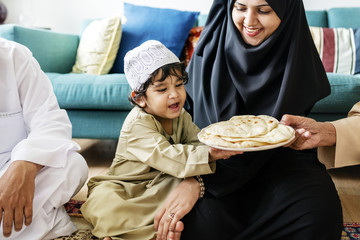The month of Ramadan is here, the ninth month of the Islamic calendar, is the period when Muslims fast from sunrise to sunset. Foods are only eaten twice a day.
The foods that are eaten before sunrise is called Suhoor, and after sunset, is called Iftar. The Ramadan is said to be a period for devout Muslims to learn modesty, generosity, patience, and spirituality.
However, it is also a great time to be healthy. In case you don’t know, fasting can improve your health, but only if done it is done in the right manner.
Fasting the month of Ramadan can be harmful if you don’t observe the appropriate healthy eating tips for Ramadan. Fasting is associated with a high risk of dehydration, and many problems in the digestive system.
5 Smart Healthy Eating Tips For Ramadan
1. Drink before eating
Drink plenty of healthy fluids like water, freshly juice, or dairy products before eating.
Doing that will prevent dehydration and give your body the essential fluids it requires. Water is the healthiest choice for hydration.
Drink at least a glass of water before your meal and do not drink during your meal to avoid delaying your digestion process.
2. Eat healthy carbohydrates
Make sure you eat a lot if healthy carbs, especially for your iftar meal. Foods such as brown rice, whole grain pasta, bread, and potatoes are healthy carbs.
You can opt for complex carbs. Complex carbs give a more rich and sustainable source of energy to the body.
3. Don’t overeat after fasting
One of the major ramadan healthy eating tips is not to overeat during iftar.
Do not try to stuff yourself with various types of food after fasting.
Most Ramadan traditions usually eat dates at the start of Iftar to signify the breaking of the fast for the day.
Dates have a lot of health benefits because they are an excellent source of energy, highly nutritious and rich in minerals. Eat moderately while you break your fast.
4. Eat slowly
After breaking your fast, don’t hurry to finish your food. Eating too fast after being deprived of eating for a whole day will lead to indigestion and other gastric problems.
Have a light iftar with moderate portions of foods is much better. Also, chew your meals slowly.
Additionally, try to avoid heavy meals for iftar, especially those with unhealthy fats, excessive salt, and added sugar. You can make your Ramadan meals healthier by stewing, incorporating fruits, roasting, steaming, and baking.
5. Practice portion control
It is surprising to find out that many people actually end up putting on weight during Ramadan.
Habits such as overeating after the fast, late-night snacking and lack of physical activity can cause you to put on weight during Ramadan.
So don’t go try to consume much when eating during iftar. Eat mindfully, and stop as soon as you are satisfied. Practice portion control too.
Also, eating foods that are spicy and salty food will get you thirsty the following day. So be mindful of what you eat.

Conclusively, eating a balanced diet is key to healthy eating during Ramadan.
Note: If you are taking any medications during the Ramadan period, make sure to visit your health care provider to learn if it is safe for you to fast or if you can take medications without food and fluids.
ALSO READ:
- How To Keep Your Breath Fresh During Ramadan
- The Health Benefits of Fasting During Ramadan
- 10 Healthy Things To Do While Fasting
- How Can Healthy Eating Lead to a Better Lifestyle?
- How Fasting Improves Brain Function









